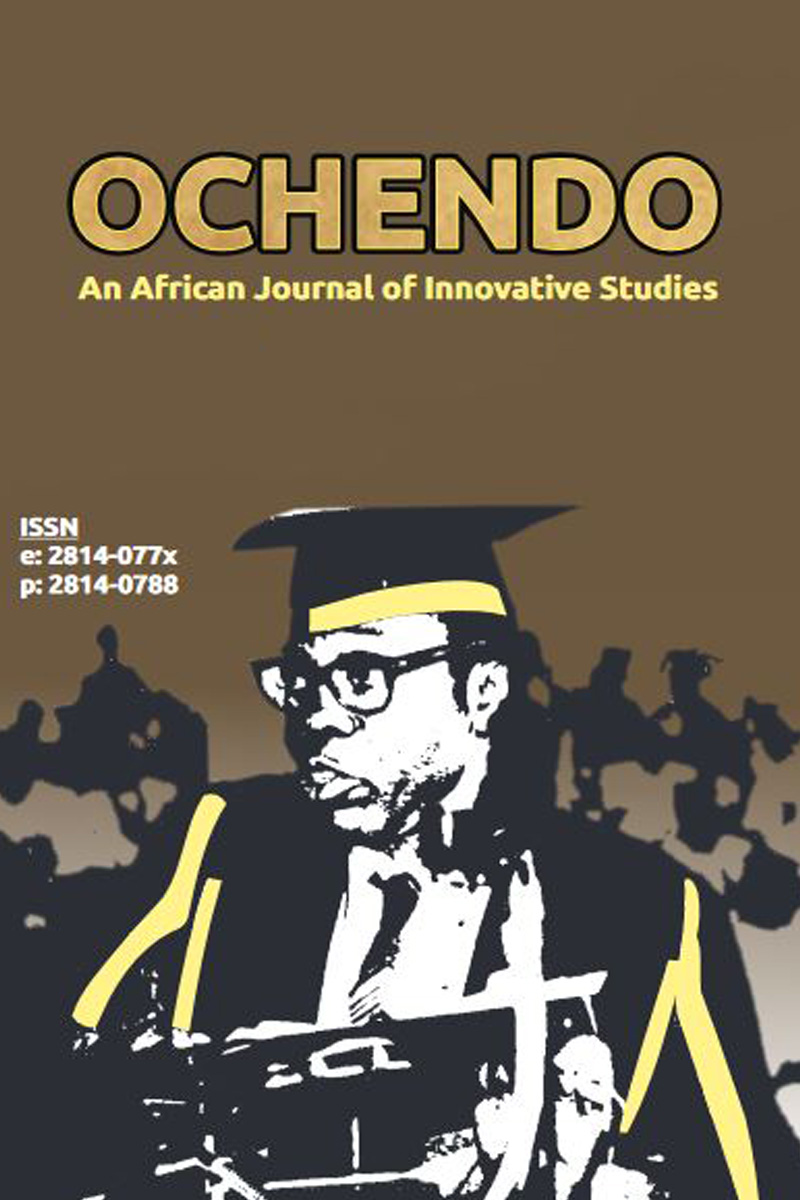 OCHENDO - An African Journal of Innovative Studies (OAAJIS) (Vol. 2 No. 1, 2021)
EDUCATION AND THE AFRICAN ENVIRONMENT
OCHENDO - An African Journal of Innovative Studies (OAAJIS) (Vol. 2 No. 1, 2021)
EDUCATION AND THE AFRICAN ENVIRONMENT
ABSTRACT
This paper discussed education and the African environment. It paid attention to how formal education has influenced the African environment. The paper was discussed under the following headings: Religion and the African Environment, and Cultural Values and the African Environment. It cherished the fact that the African environment has religious connotations as some trees, rivers and persons among others were considered sacred. Cultural values like sense of community life, sense of good human relations, sense of the sacredness of life, sense of hospitality, sense of religion among others were discussed. It was discovered that Syncretism is being practiced by Africans, in an attempt to strike a balance between Christianity and African traditional religion. Also, cultural values have been replaced with what modernization offers in terms of individualistic instead of communal life, ritual killings as an alternative to sacredness of life and socialization replaced sense of awe in worship among others. The paper did not neglect the fact that education shaped African environment positively. Noted among these positive areas where freedom for women, literacy and better health care. It was then suggested that African cultural values should be inculcated into educational curriculum to avoid them going into extinction, and efficacy of Christianity and Islamic beliefs should be emphasized. Descriptive research of correlational type was used for this study, since it attempted to solve the problems of education and African environment.

